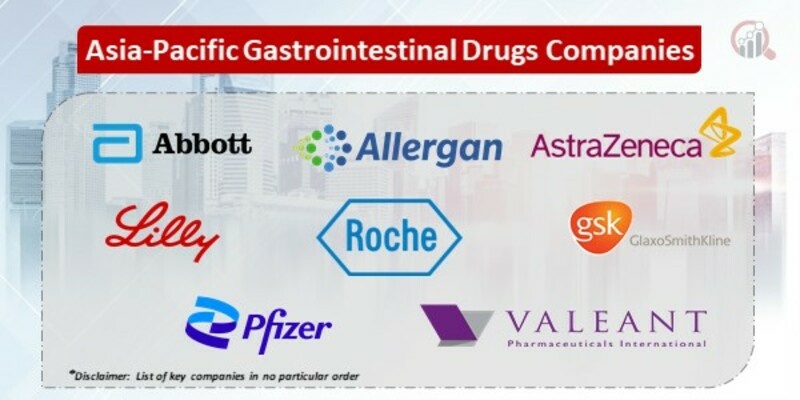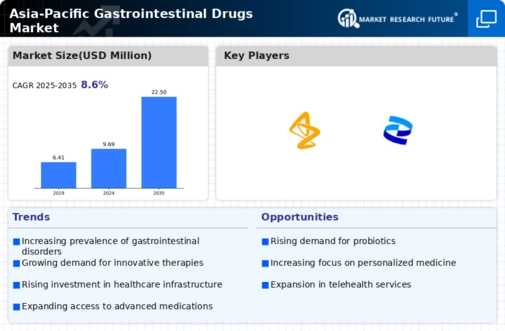Top Industry Leaders in the Asia Pacific Gastrointestinal Drugs Market

Latest Asia-Pacific Gastrointestinal Drugs Companies Updates:
Dec 2023
Takeda Pharmaceutical Company Limited Launched their Entyvio® (vedolizumab) for the treatment of ulcerative colitis in China, expanding their market reach in the region.Partnered with research institutions in Japan to develop AI-powered tools for early diagnosis and personalized treatment of GI diseases.
Eisai Received regulatory approval for their Halaven® (erituximab) for the treatment of advanced gastric cancer in South Korea, offering a new treatment option for patients.Collaborated with healthcare providers in Southeast Asia to improve access to GI medications and raise awareness about GI health management.
AstraZeneca Presented positive Phase III data on their Nexium® (esomeprazole) for the prevention of esophageal recurrence in Barrett's esophagus patients in China, strengthening their position in the acid reflux management market.Partnered with government agencies in India to implement public health education programs on GI health and disease prevention.
Sanofi S.A. Introduced their Zetia® (ezetimibe) in combination with Zocor® (simvastatin) for the treatment of high cholesterol in Japan, targeting a broader patient population.Focused on expanding their portfolio of GI medications and digital health solutions in the Asia-Pacific region.
Johnson & Johnson Announced the development of a novel oral medication for the treatment of ulcerative colitis, aimed at offering a more convenient and patient-friendly treatment option.Collaborated with startups and technology companies to develop innovative diagnostic tools and digital platforms for personalized GI care.
List of Asia-Pacific Gastrointestinal Drugs Key companies in the market
- Abbott,
- Allergan Plc,
- AstraZeneca,
- Eli lilly Company,
- Hoffmann-La Roche Ltd,
- GlaxoSmithKline plc,
- Pfizer Inc,
- Valeant Pharmaceuticals










